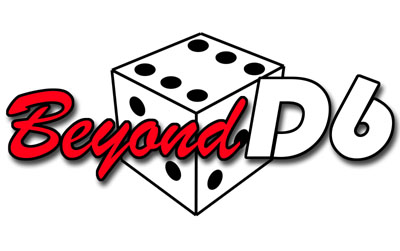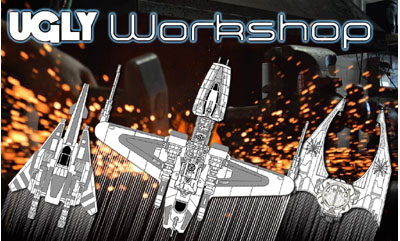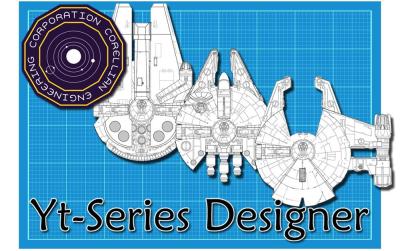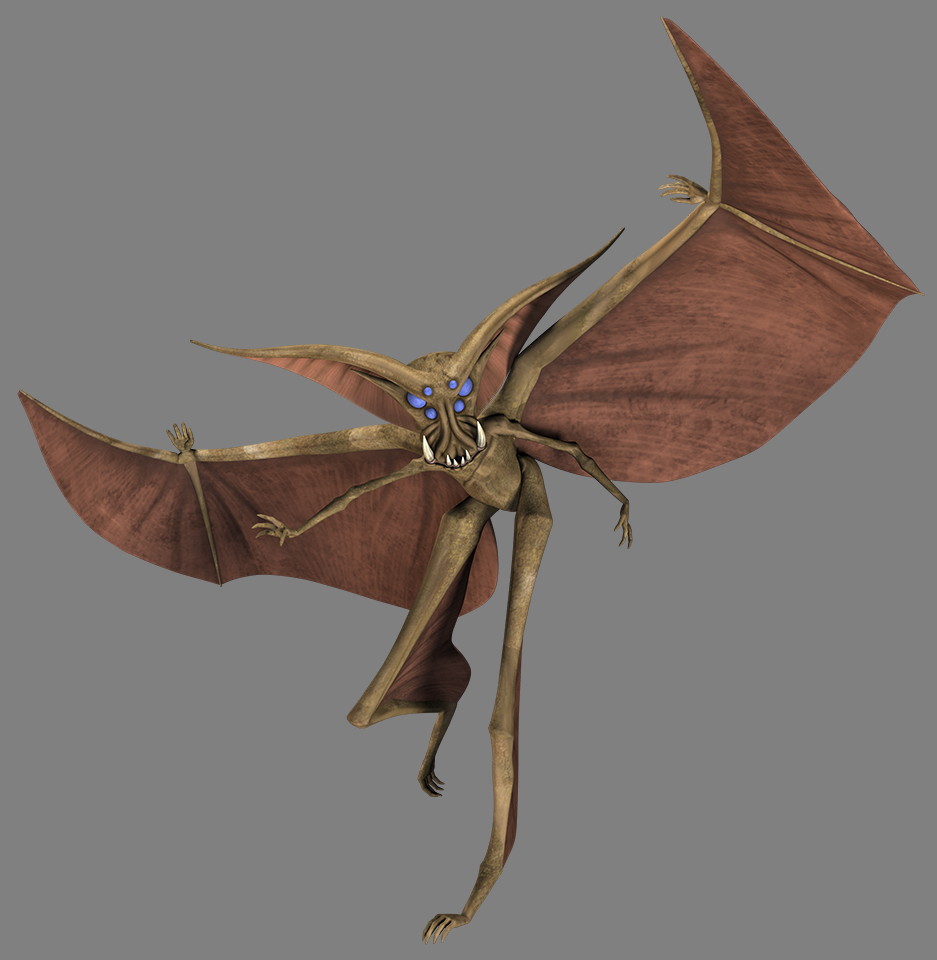This is a collection of Advanced
Skills, one for every Knowledge Skill in the 2nd Edition Revised
& Expanded rulebook. The intentions are to:
●????????
Make skills from the
Knowledge attribute that are more active to use
●????????
Make the the
Knowledge attribute more attractive to players
●????????
Add more game-mechanical
options (?crunch?) that aren't Jedi-exclusive
●????????
Add more things for
advanced non-Jedi to spend their character points on than endlessly improving
the same skills
I've tried to make each of these fit
several requirements:
●????????
Must add new
abilities, not cover things already possible under existing skills
●????????
Must follow sensibly
from the basic skill it's based on
●????????
Have some worthwhile
(if minor) use even at the starting level of 1D, since just having an advanced
skill should represent high competence
The skills are presented in alpabetical
order of the advanced skill's name. For convenience, here is a list in
alphabetical order of the basic skill names:
Alien Species ? (A) Creature Handling
Bureaucracy ? (A) Diplomatic
Connections
Business ? (A) Financial Investor
Cultures ? (A) Power Structures
Intimidation ? (A) Forbidding Presence
Languages ? (A) Ceasefire
Law Enforcement ? (A) Acquire Licence
Planetary Systems ? (A) Practical
Learning
Scholar ? (A) Focused Research
Streetwise ? (A) Phantom Identity
Survival ? (A) Hardiness
Tactics ? (A) Adaptive Strategy
Value ? (A) Evaluate Function
Willpower ? (A) Strong Mind
(A) Acquire Licence
Requires Law Enforcement 5d
"I will make it legal."
- Darth Sidious
The character with this ability has
either a circle of influence within the law or exhaustive knowledge of legal
loopholes, specific to licences and permits for restricted items.
The difficulty of the roll to acquire a
legal permit for an item depends on the item's legal restriction rating:
Automatic:
Item rated F.
Very Easy:
Item rated R.
Easy:
Item rated X, but not especially sensitive.
Moderate:
Item rated X, and specific to government military (like Stormtrooper armour).
Difficult:
Item rated X, and advanced or large scale military equipment (like artillery or
capital ships)
Very Difficult:
Item rated X, advanced or large scale equipment specific to government military
(like AT-ATs or Star Destroyers)
Heroic:
Highly sensitive items like weapons of mass destruction, or lightsabers during
the reign of the Empire.
The fees and times required are reduced
by half. Also note that the skill only grants legal permits for the items, but
it doesn't remove any other consequences - repeating blasters still attract
attention, and Darth Vader does not care if it's technically legal for you to
own a lightsaber.
(A) Adaptive Strategy
Requires Tactics 5d
"You lose, General
Kenobi!" - General Grievous
A character with this skill has a keen
tactical awareness, able to skilfully deploy to seize the initiative, and to
keep the upper hand by anticipating enemy reactions.
This skill adds its rating to
Perception rolls made for initiative in combat. If the character with this
skill isn't the one with the highest Perception, then the character with
Adaptive Strategy gets to roll as if he had the other character's Perception,
plus the Adaptive Strategy bonus.
(A) Ceasefire
Requires Languages 5d
"Careful, Sebulba. He's a
big-time outlander. I'd hate to see you diced before we race again." -
Anakin Skywalker
This skill allows the use of body
language and vocal cues common among sentients to intervene and prevent a
hostile situation escalating to violence.
The skill may be used when combat is
about to begin, at any time before the player rolls initiative. It
automatically goes before anyone's initiative. Once combat has begun, Ceasefire
cannot be used except at the GMs discretion (for instance, if the enemy are
losing and may be ready to negotiate) and the difficulty will be one level
higher. The difficulty depends on the NPCs motivations in fighting:
Very Easy:
Reluctant/Defensive. This is the case when the enemies are only fighting
because they think they must, and would welcome a reason not to.
Easy:
Intent. The enemies are resolved to fight, but have no real personal stake
beyond their own safety. This is typical of professional soldiers.
Moderate:
Angry/Hateful. The enemies are out for blood, driven by revenge or some other
strong motive.
Difficult:
Berserk. The enemies are in intense rage (like berserk wookiees) or otherwise
almost beyond reason. This is the minimum difficulty to halt a Sith Lord's
attack.
While this skill doesn't require
fluency in a common language, the difficulty is one level higher if the
character cannot communicate in words. Even if Ceasefire is successful, the
other party must still be somehow convinced not to attack or hostilities will
begin anyway - this skill simply allows for a chance at a non-violent solution.
(A) Creature Handling
Requires Alien Species 5d
"Let the executions
begin." - Poggle the Lesser
A character with this skill can apply
knowledge of biology and behaviour to tame and train creatures. Creature
Handling checks are made as an opposed check against the creature's Strength
attribute, but some creatures will have a higher or lower die code to resist
than normal, depending on their temperament. Creature Handling adds it's die
code to Alien Species as normal for an advanced skill, but also to Beast
Riding.
One use for this skill is to break in a
mount. This takes one day and requires a successful Creature Handling check -
if failed, it can be retried in another day, unless the Wild Die comes up as a
1. In this case, Creature Handling will not work on that mount. Success at this
means that the mount has it's Orneriness rating reduced by the Creature Handling
die code (but only for the Creature Handler). If the Orneriness is reduced
below 1d, it remains at 1d but the mount will only require Beast Riding rolls
to control it in severe cases - for instance, if wounded.
Creature Handling can be used to calm hostile
wild creatures. This may be attempted when combat is about to begin, at any
time before the player rolls initiative. It automatically goes before anyone's
initiative. Once combat has begun, calming cannot be attempted except in
exceptional circumstances. The usual opposed roll for Creature Handling
applies.
Finally, a Creature Handler can attempt
to master a creature so it will obey his commands. Firstly, the Creature
handler must calm the creature (even if it isn't actively hostile at first).
The training process itself requires another roll. The difficulty depends on
the creature's Strength die code:
Very Easy:
below 3d
Easy:
3d to 3d+2
Moderate:
4d to 4d+2
Difficult:
5d to 5d+2
Very Difficult:
6d to 6d+2
Heroic:
7d or more
The training process takes a week
normally - it can be attempted in a day, but at difficulty level higher. If
this roll fails, the creature is untrainable by this character. Success means
that the Creature Handler may command the creature with a suite of basic
commands: "attack", "follow", "stay", etc.
Control of the creature can still be lost, if it's wounded or made to face a
creature it recognises as higher in the food chain (similarly to a broken-in
mount) - in such a situation, the Creature Handler makes a normal opposed roll
to keep control. The consequences for failure are similar to failure on a Beast
Riding check.
(A) Diplomatic Connections
Requires Bureaucracy 5d
"I have word that the
Chancellor's ambassadors are with you now, and that you have been commanded to
reach a settlement." - Queen Amidala
Special Note:
A player taking this skill must describe who his contacts are and why they are
willing to help him.
This isn't exactly a "skill"
- it represents connections within the diplomatic corps of the galactic
government of the era, the power and usefulness dependent on the die code. The
difficulty of the roll depends on the extent of the aid that the player
requires. Note that the contact(s) have their own goals and responsibilities,
so aren't always at the PC's disposal and may sometimes expect aid in return.
Very Easy:
Introduction (Harmless). This allows the PC to get an introduction or referral
to someone who could be useful for a particular situation, but it doesn't
automatically make that person friendly or helpful. This is limited to people
that a diplomat can afford to be openly involved with (for instance, not a
known criminal).
Easy:
Introduction (Clandestine). This works like the Very Easy result, but the PC
can be put in touch with someone from the underworld or otherwise not
"respectable".
Moderate:
Diplomatic Bag. The contact can arrange to have a package transported in a
"diplomatic bag" and therefore legally untouchable. This is a major
favour - the contact knows that the package is almost certainly illegal or
dangerous, otherwise the PC wouldn't need this service - and so the player will
owe the contact a big favour in return.
Difficult:
Diplomatic Immunity. The PC can have the contact do something outright illegal,
using diplomatic immunity as a fallback in case he gets caught. This is an
extremely large favour to ask, so the PC will be greatly indebted to his
contact.
(A) Evaluate Function
Requires Value 5d
"Oh, you know, Master, I
couldn't find a speeder that I really liked. With an open cockpit and the right
speed capabilities." - Anakin Skywalker
The Value skill allows a character to
inspect an item to assess it's performance. With Evaluate Function, a character
can estimate some of the specifications of a device just by seeing it. Use of
this skill requires an action, and the character must designate a specific
detail: for example, Maneuverability or Shields of a ship, or Damage of a
blaster. Use of this skill may be disallowed in cases where the characteristic
isn't visible (for instance, concealed weapons). This can be tried multiple
times (requiring one action each) until a 1 is rolled on the Wild Die, at which
point no further details can be evaluated. The difficulty depends on the
character's familiarity with the technology:
Very Easy:
Common technology (TIE fighter, DL-18 blaster pistol), or any kind that the
character owns.
Easy:
Less common technology (Corellian Powersuit, E-Web repeating blaster), or
technology the character has once used.
Moderate:
Rare or unique technology, or non-standard/modified technology like a
retrofitted weapon on a stock freighter.
Difficult:
Technology of a completely unknown kind, like Ssi-ruuk ships powered by captive
life-forces.
If
the character scores one difficulty level higher than required, he spots an
exploitable weakness. This allows a 1d bonus to a single type of roll at
Gamemaster discretion. For example, spotting a weakness when evaluating a
blaster's damage could improve Dodge against that weapon; spotting a weakness
in a vehicle's Hull could improve damage rolls against it.
(A) Financial Investor
Requires Business 5d
"The taxation of trade
routes to outlying star systems is in dispute." - opening crawl of The
Phantom Menace
A character with this skill is a
financial expert, able to profit from buying and selling commodities.
Special Note:
This skill isn't appropriate for all campaigns: if the GM wants to keep the
characters poor and struggling, this skill should be off limits.
Between each adventure (possibly more
or less often, at the GMs option and depending on the passage of game time),
the player may roll this skill to make a profit from the financial markets. The
GM then rolls a single Wild Die and compares the result to the player's. If the
player rolls higher, the difference, multiplied by 100, is the PC's profit in
credits. If the GM rolls higher, the difference, multiplied by 100, is the PC's
loss in credits. Investments can go down as well as up! In this case, the
player can cover the loss from his available cash on hand (if possible), or
lose a pip off the skill for every 100 credits loss unpaid (down to 1d
minimum). Failing either, the PC's assets are frozen and he loses access to
this skill until the money is paid back.
Higher skill levels allow the player to
"raise the stakes" with larger investments and bigger risks. With 2d
in the skill, the player can risk 250 credits per point of loss, gaining 200
credits per point if he succeeds. 3d skill allows for a risk of 500 credits per
point for 300 credits per point of success, 4d allows for a risk of 800 credits
per point for 400 credits per point of success, and 5d or more allows for a
risk of 1250 credits per point for 500 credits per point of success. The player
may take any level of risk up to the maximum allowed by the skill level, and
must of course declare before rolling (the 100 credit stake is the default
unless the player declares otherwise).
This skill may also permit the PC to
gain legitimate access to a corporation's records or sites if he happens to own
a stake in the company. This is handled by a skill roll, with the easiest
difficulty (Moderate) for pan-galactics like Industrial Automaton or the Czerka
Corporation, up to Heroic or more for small local companies. Larger demands
(like gaining access to secure R&D labs) increase the difficulty by at
least one level.
(A) Focused Research
Requires Scholar 5d
"If an item doesn't appear
in our records, it does not exist." - Jocastu Nu
This skill allows the use of an
extensive data source to enhance another skill roll. The researcher requires
access to a library or some other information centre. A particularly good one
(like the Jedi Archives before Order 66) could add 1d to the Focused Research
roll. The Holonet works, but isn't private - getting a 1 on the Wild Die when
researching on the Holonet could bring unwanted attention, and PCs are usually
up to something they shouldn't be...
The Focused Research skill roll result
is added to the other skill roll. The skill to be aided must be one that can
reasonably be assisted with research, mostly Knowledge and Technical skills.
Blaster or Dodge can't normally be aided with research because the specifics of
combat are unpredictable, but an assassin setting up for a single carefully
prepared sniper shot in a planned situation might be able to use Focused Research
for it. The Focused Research bonus is not cumulative with the normal 1d bonus
for "preparing" a skill use.
The time taken for Focused Research is
the time that the skill use itself requires, or 1 day, whichever is longer.
(A) Forbidding Presence
Requires Intimidation 5d
"Master Kenobi, you
disappoint me. Yoda holds you in such high esteem. Surely you can do
better." - Count Dooku
A character with this ability can
unsettle others with his intimidating manner. This can be physical and direct,
or subtly disquieting.
The character can exert his presence by
rolling this skill versus the Willpower of a single target at the beginning of
a confrontation (not necessarily combat). If successful, the number of points
it succeeds by is subtracted from all the target's rolls made directly against
this character ? social rolls count, as do command rolls made to coordinate
others to attack the character, but not defence rolls. The maximum possible
penalty is -10. This effect lasts for the duration of the encounter ? at least
until the end of the confrontation and the characters are no longer in each
other's presence.
(A) Hardiness
Requires Survival 5d
"I'd be out there with them,
but after I lost my leg, I just couldn't ride anymore. Until I heal."
Cliegg Lars
Veteran survivalists and fringers are
often much tougher than they look, with a never-say-die determination that
carries them through physical ordeals.
This skill adds its rating to Strength
rolls made for natural healing from injury, and to Stamina rolls to resist
poison or disease. Hardiness also allows the character a chance to ignore wound
penalties, working like the Force Power Control Pain. This costs no actions to
"keep up", and is rolled using (A) Hardiness instead of Control (as a
free action).
(A) Phantom Identity
Requires Streetwise 5d
"They say Master Sifo-Dyas
placed an order for a clone army at the request of the Senate almost ten years
ago. I was under the impression he was killed before that. Did the Council ever
authorise the creation of a clone army?" - Obi-Wan Kenobi
A character with this skill knows how
to keep multiple false identities, and how to work through intermediaries to
hide his involvement.
By working through proxies, this
character can foil attempts to trace his actions back to him. The difficulty
depends on the identity being faked:
Very Easy:
a living person (cannot choose any individual in particular)
Easy:
an "empty" fake identity with no supporting evidence
Moderate:
a fake identity linked to a valid citizenship ID number
Difficult:
a detailed fake identity linked to a valid citizenship ID number with a vacant
address and a reason for being offworld
Very Difficult:
a fully detailed alternate identity for the character himself, with no
connection to his real identity.
If the activity is traced, the trail
leads to the fake identity. Whether the tracer stops there depends on how
thorough she is and the level of faking - empty identities are easy for a good
investigator to see through, and real people actively try to prove their innocence
if blamed for illegal activity! If the investigator takes it further, the
Phantom Identity skill result is added to her difficulty to follow the trail.
Also, when attempting to lie low and
avoid being found (for instance, by bounty hunters), the difficulty to find the
character by Investigation or similar skills is raised by a roll of the
character's Phantom Identity skill.
(A) Power Structures
Requires Cultures 5d
"Enter: the bureaucrats. The
true rulers of the Republic... and on the payroll of the Trade Federation, I
might add. This is where Chancellor Valorum's strength will disappear." -
Senator Palpatine
Nearly every sentient society,
primitive or sophisticated, has some kind of power structure. A character with
this skill can work them out quickly.
A character can make a Power Structures
roll to determine who is in charge in a group if it isn't obvious. This can be
useful to see who has the most real power (and so would be the perfect ally to
win over) even if they're not the official leader, or to spot the squadron
leader among hostile starfighters. The difficulty is Very Easy if the one in
charge is using their influence, Easy otherwise, or Moderate if they are
deliberately trying to seem unremarkable; if they possess (A) Phantom Identity,
this adds to the difficulty in the latter case.
This skill can also be used as a type
of applied psychology on individuals to "size them up". The player
must choose a skill to assess, and on a success, the GM reveals the exact die
code to the player. The difficulty depends on the PC's own die code in that
skill:
Very Easy:
6d or more
Easy:
5d to 5d+2
Moderate:
4d to 4d+2
Difficult:
3d to 3d+2
Very Difficult:
2d to 2d+2
Heroic:
less than 2d
This can be tried multiple times
(requiring one action each) up to a number of successful uses equal to the PC's
number of dice in Power Structures (e.g. 2d+2 Power Structures reveals up to
two skill die codes, even if some of the attempts fail).
(A) Practical Learning
Requires Planetary Systems 5d
?No, no, it's beyond the outer rim.
I'd say about, oh, 12 parsecs outside the Rishii Maze. Should be easy to find,
even for those droids in your archives.? - Dexter Jettster
Characters with this skill are
well-travelled, and have acquired the ability to learn quickly from their
experiences and apply their knowledge. This gives opportunities for skills used
in play to get free ?Practical? skill gains, that split off from the original
base skills similarly to specialisations.
During an adventure, a character with
this skill notes down each regular skill that is used (successfully or not),
known as ?ticking?. This can be done by placing a tick-mark next to the skill
on the character sheet, or noted separately. Multiple uses of a skill grant no
additional ticks, and only regular skills (not advanced or Force skills) can be
ticked. After the adventure, the character may attempt to increase up to ten
ticked skills of their choice for no character point cost. This involves an
opposed roll of (A) Practical Learning against the ticked skill; neither skill
can be modified for this roll in any way. If the (A) Practical Learning roll is
equal or higher, the character gains a free ?Practical? skill pip in that
skill; otherwise (if the regular skill roll is higher) there is no benefit.
After the chosen ticked skills are rolled for, all ticks are erased for the
next adventure. Skills raised in this way should have the previous value kept
as-is, with the new value recorded with a (P) before it.
Practical skill gains work exactly like
the normal kind of skill gain bought with Character Points, with only one
exception: they cannot be raised further with Character Points. If a player
still wants to buy up a skill that has been raised with Practical Learning, he
has to buy it from the original value, without the benefit of any of the
Practical Learning raises.
Example:
A player's character has (A) Practical Learning at 3d. She has Mechanical 2d,
has already bought Starship Gunnery to 3d+1 (one die at character creation, and
a single pip bought with Character Points) and has benefited once from
Practical Learning for this skill in a previous adventure, and so has (P)
Starship Gunnery 3d+2. The PC uses this skill during another adventure, and the
player chooses to try to increase this skill again with Practical Learning. She
rolls (A) Practical Learning at 3d and (P) Starship Gunnery at 3d+2. If the
Practical Learning roll is equal or higher, (P) Starship Gunnery improves
another pip to 4d (per the usual rules for improving a skill). If she wants to
improve the skill with Character Points, she will have to buy it up from the
non-Practical skill level of 3d+1.
(A) Strong Mind
Requires Willpower 5d
?Are you going to use one of your
Jedi Mind Tricks on me?? - Padme Amidala
A character with this skill is
especially hardened to mental influence, even to the point of fighting off a
Jedi Mind Trick.
When required to make a "Control
or Perception" roll to resist a Force power (or similar ability), the
character gets to add the Strong Mind die code to the resistance roll. Successful
resistance means the Force-user cannot try the same power on that character
again until his own die code for the power increases.











